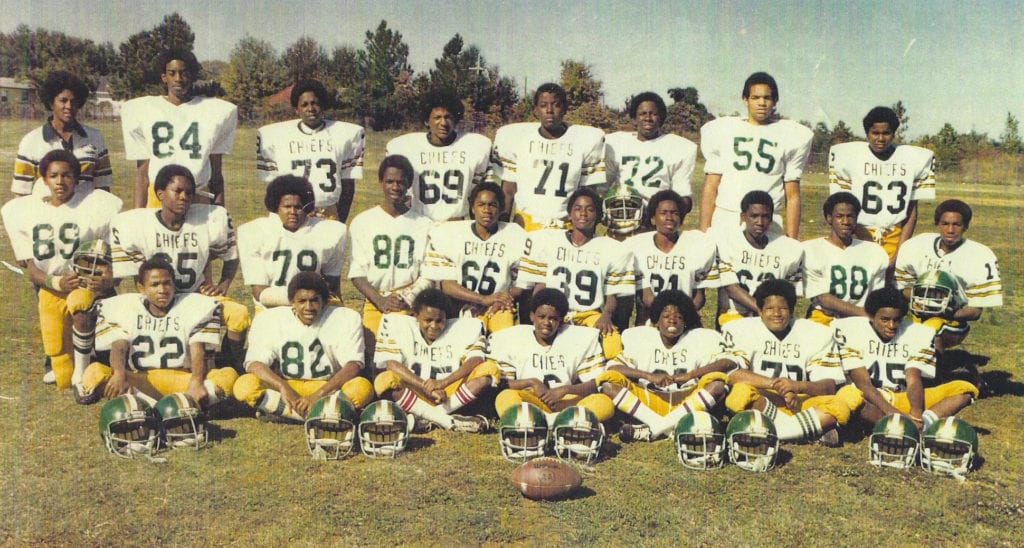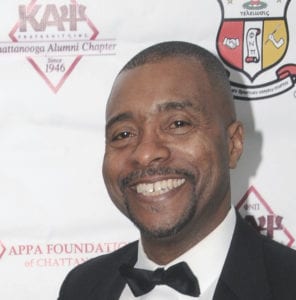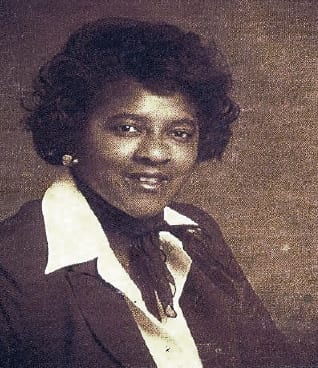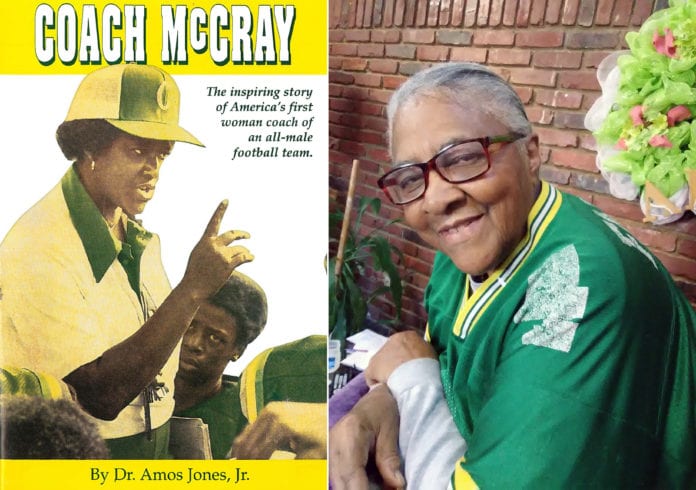by Dr. Yvonne D. Nelson —
Coach Shirley Yvonne McCray coached all-male football teams for 24 years (1973-1997). Coached by the late Coach Elmer Roane, McCray emerged as the first Black woman to play basketball, volleyball, and track in the 60s. She matriculated with a Master’s Degree in Supervision and Administration from Trevecca Nazarene College in Nashville in 1992. McCray retired from teaching at the Memphis City Schools in 1997.
Memphis’s Coach Shirley Yvonne McCray graduated from Memphis State University (now the University of Memphis) with a degree in Health and Physical Education, in 1964. McCray coached secondary school boys in football in the mid-1970s, possibly before some of today’s female coaches were even born.
“I was the nation’s first and only female coach of an all-male football team,” said McCray, 79, who coached junior and high school boys and girls in various sports including, volleyball, track, tennis and basketball.
“Past experiences propelled me into a career as an educator and a coach. In 1973, there wasn’t any record of a woman coaching an all-male football team; therefore, I should be considered the first.”
McCray received the Best Female Athlete designation upon graduating from Hamilton High School in 1959. She taught at Riverview, Chickasaw, Geeter, and Lanier Junior High Schools, at Kingsbury High School, and retired from Booker T. Washington High School in 1997.
Each school was part of the legacy Memphis City Schools and current Shelby County Schools system.

“After I graduated from Hamilton, I worked a job while receiving an Associate of Arts Degree from Wilson Junior College in Chicago,” McCray said.
“I returned to Memphis in 1963 and found a job at the Bruce Box Factory. I was not successful when I first tried to pass the entrance exam for Memphis State University.
“I worked hard and passed the exam the following year. I was the first Black person, male or female, to enroll in and graduate from the university’s Health and Physical Education Department.
“Integration was beginning to make its impact on Memphis as it was all over. I was called ‘Nigger’ so much that I began to loath the place and wanted to drop out forever. I’m glad my family stayed on me and made me go back to school day after day. I do not know where I would be today or what I would be doing without them and their continuous support.”
Thanks to a strong family and religious base, McCray pushed on, excelling in life and at school.
“My (university) studies were not exceptionally difficult,” said McCray, who was awarded the 50-year (1967–2017) Golden Recipient Award from the U of M.
She was selected as one of 100 women who made a difference in education at the university during its’ first 100 years of existence.
Coach McCray worked with middle/junior and high school students ages 13 and up. Her teams did not win every game they played, but her focus was on her players gaining what they needed to become successful in life.

When he was in the seventh and eighth grades at Chickasaw Junior High School, Darrell R. Walsh, Ph.D., who is an assistant professor at the University of Tennessee-Chattanooga, played basketball and football under McCray, who regularly keeps in touch with co-workers and students from her 30-year tenure teaching.
“She was a wonderful coach who made us work hard,” said Walsh, who began playing for Coach McCray when he was 13.
“She was a firm and tough coach. She believed in the idea of winning but, most importantly, she taught us lessons about the game and also about life off the field. She demanded a lot out of us and she made the experience a very positive one for everyone involved.
“Several years ago, our class member Kasey Hall held an event in her honor at his home. We all attended to show our love and support for Coach McCray. She was one of the best coaches that I had. She instilled in me that she had high expectations of me, of all of us. My own parents were good parents and because of the way Coach McCray was able to deliver criticism and praise in a way that all of us would take to heart, they were very fond of her too.”
McCray helped many of her students and athletes over the years. She spent a full week over the Thanksgiving holiday with another student, Air Force retiree James Hoskins, who purchased a round trip ticket for her to travel to Delaware to show her his appreciation for being his coach.
She also received instruction and a few tips from one or two male coaches. One, her former church member Deacon Hosea Alexander, invited her to visit him at his home when he first learned she wanted to be a football coach.
“Deacon was the winningest coach in Memphis at the time,” said McCray about former BTW coach. “I wanted to be the best football coach. I wanted to learn about football and Coach Alexander gave me my start. He laid my foundation when he invited me to his home. We spent nearly two hours covering a lot of film materials, what to look for in a player, attitudes, form, and more.”

It was a difficult road for McCray to travel and now that she has completed her journey, she would like to reflect back, especially to other women, on what her experiences taught her.
“My own experience has taught me that a woman will never be considered as a coach based on her abilities according to most of her male counterparts,” said McCray.
“She must look to the end results of the individual lives she coached and base her success on their achievements. Hard-working and successful doctors of philosophy, policemen, firemen, teachers, veterans and more, my hope was for the success of the young men and women on those teams I coached. I wanted for something to come of them, that they would grow up to become somebody.
“My dad, grandmother, and aunt had worked hard for me to become somebody and every day I worked hard to pass that blessing on to the athletes and students I coached and taught. My first team is 59-60 years old now and I want to praise them for listening and succeeding in life.”
McCray said her philosophy is found in the words of this song:
“If I can help somebody as I pass along,
“If I can cheer somebody with a word or song,
“If I can show somebody s/he is going wrong,
“Then, my living shall not be in vain.”
McCray heaps thanks on her students and athletes.
“Their success proves my dedication was not in vain,” she said.
(Contact Coach McCray at coachmac50@aol.com to order a copy of her biography.)


